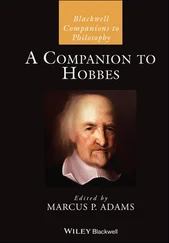Thomas Hobbes - Leviathan
Здесь есть возможность читать онлайн «Thomas Hobbes - Leviathan» — ознакомительный отрывок электронной книги совершенно бесплатно, а после прочтения отрывка купить полную версию. В некоторых случаях можно слушать аудио, скачать через торрент в формате fb2 и присутствует краткое содержание. Жанр: unrecognised, на английском языке. Описание произведения, (предисловие) а так же отзывы посетителей доступны на портале библиотеки ЛибКат.
- Название:Leviathan
- Автор:
- Жанр:
- Год:неизвестен
- ISBN:нет данных
- Рейтинг книги:5 / 5. Голосов: 1
-
Избранное:Добавить в избранное
- Отзывы:
-
Ваша оценка:
- 100
- 1
- 2
- 3
- 4
- 5
Leviathan: краткое содержание, описание и аннотация
Предлагаем к чтению аннотацию, описание, краткое содержание или предисловие (зависит от того, что написал сам автор книги «Leviathan»). Если вы не нашли необходимую информацию о книге — напишите в комментариях, мы постараемся отыскать её.
libreka classics – These are classics of literary history, reissued and made available to a wide audience.
Immerse yourself in well-known and popular titles!
Leviathan — читать онлайн ознакомительный отрывок
Ниже представлен текст книги, разбитый по страницам. Система сохранения места последней прочитанной страницы, позволяет с удобством читать онлайн бесплатно книгу «Leviathan», без необходимости каждый раз заново искать на чём Вы остановились. Поставьте закладку, и сможете в любой момент перейти на страницу, на которой закончили чтение.
Интервал:
Закладка:
Science
By this it appears that Reason is not as Sense, and Memory, borne with us; nor gotten by Experience onely; as Prudence is; but attayned by Industry; first in apt imposing of Names; and secondly by getting a good and orderly Method in proceeding from the Elements, which are Names, to Assertions made by Connexion of one of them to another; and so to syllogismes, which are the Connexions of one Assertion to another, till we come to a knowledge of all the Consequences of names appertaining to the subject in hand; and that is it, men call SCIENCE. And whereas Sense and Memory are but knowledge of Fact, which is a thing past, and irrevocable; Science is the knowledge of Consequences, and dependance of one fact upon another: by which, out of that we can presently do, we know how to do something els when we will, or the like, another time; Because when we see how any thing comes about, upon what causes, and by what manner; when the like causes come into our power, wee see how to make it produce the like effects.
Children therefore are not endued with Reason at all, till they have attained the use of Speech: but are called Reasonable Creatures, for the possibility apparent of having the use of Reason in time to come. And the most part of men, though they have the use of Reasoning a little way, as in numbring to some degree; yet it serves them to little use in common life; in which they govern themselves, some better, some worse, according to their differences of experience, quicknesse of memory, and inclinations to severall ends; but specially according to good or evill fortune, and the errors of one another. For as for Science, or certain rules of their actions, they are so farre from it, that they know not what it is. Geometry they have thought Conjuring: but for other Sciences, they who have not been taught the beginnings, and some progresse in them, that they may see how they be acquired and generated, are in this point like children, that having no thought of generation, are made believe by the women, that their brothers and sisters are not born, but found in the garden.
But yet they that have no Science, are in better, and nobler condition with their naturall Prudence; than men, that by mis-reasoning, or by trusting them that reason wrong, fall upon false and absurd generall rules. For ignorance of causes, and of rules, does not set men so farre out of their way, as relying on false rules, and taking for causes of what they aspire to, those that are not so, but rather causes of the contrary.
To conclude, The Light of humane minds is Perspicuous Words, but by exact definitions first snuffed, and purged from ambiguity; Reason is the Pace; Encrease of Science, the Way; and the Benefit of man-kind, the End. And on the contrary, Metaphors, and senslesse and ambiguous words, are like Ignes Fatui; and reasoning upon them, is wandering amongst innumerable absurdities; and their end, contention, and sedition, or contempt.
Prudence & Sapience, With Their Difference
As, much Experience, is Prudence; so, is much Science, Sapience. For though wee usually have one name of Wisedome for them both; yet the Latines did always distinguish between Prudentia and Sapientia, ascribing the former to Experience, the later to Science. But to make their difference appeare more cleerly, let us suppose one man endued with an excellent naturall use, and dexterity in handling his armes; and another to have added to that dexterity, an acquired Science, of where he can offend, or be offended by his adversarie, in every possible posture, or guard: The ability of the former, would be to the ability of the later, as Prudence to Sapience; both usefull; but the later infallible. But they that trusting onely to the authority of books, follow the blind blindly, are like him that trusting to the false rules of the master of fence, ventures praesumptuously upon an adversary, that either kills, or disgraces him.
Signes Of Science
The signes of Science, are some, certain and infallible; some, uncertain. Certain, when he that pretendeth the Science of any thing, can teach the same; that is to say, demonstrate the truth thereof perspicuously to another: Uncertain, when onely some particular events answer to his pretence, and upon many occasions prove so as he sayes they must. Signes of prudence are all uncertain; because to observe by experience, and remember all circumstances that may alter the successe, is impossible. But in any businesse, whereof a man has not infallible Science to proceed by; to forsake his own natural judgement, and be guided by generall sentences read in Authors, and subject to many exceptions, is a signe of folly, and generally scorned by the name of Pedantry. And even of those men themselves, that in Councells of the Common-wealth, love to shew their reading of Politiques and History, very few do it in their domestique affaires, where their particular interest is concerned; having Prudence enough for their private affaires: but in publique they study more the reputation of their owne wit, than the successe of anothers businesse.
CHAPTER VI. OF THE INTERIOUR BEGINNINGS OF VOLUNTARY MOTIONS
COMMONLY CALLED THE PASSIONS. AND THE SPEECHES BY WHICH THEY ARE EXPRESSED.
Motion Vitall And Animal
There be in Animals, two sorts of Motions peculiar to them: One called Vitall; begun in generation, and continued without interruption through their whole life; such as are the Course of the Bloud, the Pulse, the Breathing, the Concoctions, Nutrition, Excretion, &c; to which Motions there needs no help of Imagination: The other in Animal Motion, otherwise called Voluntary Motion; as to Go, to Speak, to Move any of our limbes, in such manner as is first fancied in our minds. That Sense, is Motion in the organs and interiour parts of mans body, caused by the action of the things we See, Heare, &c.; And that Fancy is but the Reliques of the same Motion, remaining after Sense, has been already sayd in the first and second Chapters. And because Going, Speaking, and the like Voluntary motions, depend alwayes upon a precedent thought of Whither, Which Way, and What; it is evident, that the Imagination is the first internall beginning of all Voluntary Motion. And although unstudied men, doe not conceive any motion at all to be there, where the thing moved is invisible; or the space it is moved in, is (for the shortnesse of it) insensible; yet that doth not hinder, but that such Motions are. For let a space be never so little, that which is moved over a greater space, whereof that little one is part, must first be moved over that. These small beginnings of Motion, within the body of Man, before they appear in walking, speaking, striking, and other visible actions, are commonly called ENDEAVOUR.
Endeavour; Appetite; Desire; Hunger; Thirst; Aversion
This Endeavour, when it is toward something which causes it, is called APPETITE, or DESIRE; the later, being the generall name; and the other, oftentimes restrayned to signifie the Desire of Food, namely Hunger and Thirst. And when the Endeavour is fromward something, it is generally called AVERSION. These words Appetite, and Aversion we have from the Latines; and they both of them signifie the motions, one of approaching, the other of retiring. So also do the Greek words for the same, which are orme and aphorme. For nature it selfe does often presse upon men those truths, which afterwards, when they look for somewhat beyond Nature, they stumble at. For the Schooles find in meere Appetite to go, or move, no actuall Motion at all: but because some Motion they must acknowledge, they call it Metaphoricall Motion; which is but an absurd speech; for though Words may be called metaphoricall; Bodies, and Motions cannot.
Читать дальшеИнтервал:
Закладка:
Похожие книги на «Leviathan»
Представляем Вашему вниманию похожие книги на «Leviathan» списком для выбора. Мы отобрали схожую по названию и смыслу литературу в надежде предоставить читателям больше вариантов отыскать новые, интересные, ещё непрочитанные произведения.
Обсуждение, отзывы о книге «Leviathan» и просто собственные мнения читателей. Оставьте ваши комментарии, напишите, что Вы думаете о произведении, его смысле или главных героях. Укажите что конкретно понравилось, а что нет, и почему Вы так считаете.












